BY CHERESE COBB, FREELANCER
For four years, Department of State (DOS) Agent Paddy worked as an Explosive Ordnance Division Technician at the U.S. Embassy in Kabul, Afghanistan. When Danny Scheurer and the rest of his unit went to clear a building, he leaped from an SUV and dashed to the door. “We tried to run,” Danny remembers. “But the guys in the back — because they didn’t have radio silence or a [military] dog—breached the building. It blew up.”
While serving their country, both Danny and Paddy were injured. Danny was given a 70 percent disability rating. “I received VA medical care, options for schooling, paid training for employment and multiple other perks for serving my country.” However, Paddy was labeled unsuitable for typical retirement. Because of former aggression, he was slated to be put down.
“How’s that for a soldier who serves?” Danny says. Dogs have been officially serving as four-legged soldiers in the U.S. military since World War I (1914-1918). Approximately 5,000 military working dogs (MWDs) served in the Vietnam War. They saved nearly 10,000 human lives. (The U.S. Army didn’t keep records before 1968). MWDs also took part in the takedown of Taliban leader Osama bin Laden and ISIS leader Abu Bakr al-Baghdadi.
There are around 2,500 MWDs in service today and 700 deployed overseas. “Imagine hearing both stories, while not aware that Paddy is a canine,” he says. “Most people’s reaction would be anger, concern or consternation regarding a veteran being denied retirement due to atypical retirement qualifications.”
That’s where Save-A-Vet in Lindenhurst, Ill., comes in. Danny started the nonprofit to rescue canines that aren’t adoptable because of their attack training, field experiences or physical and mental injuries—including post-traumatic stress disorder and traumatic brain injuries that may cause dogs to barely blink or eat.
“Unlike a lot of agencies, the DOS truly cares about their K9s and reached out to Save-A-Vet asking us to take him [Paddy] into our program,” Danny says. “I’m very happy they did this as he’s now one of our most loveable K9s and the new mascot of the organization.”
The English Springer Spaniel loves all animals and people. He usually can be found claiming all of the office couches or stuffing tennis balls under their cushions. “He’s got about 150 balls everywhere. He constantly has one in his mouth,” Danny says.
“We don’t have a normal shelter because we don’t foster.” Instead, Save-A-Vet puts K9s in secured facilities throughout the country. It also hires disabled military or law enforcement officers to care for its dogs in exchange for rent-free housing. They’re randomly drug tested. “They must be able to pass a background check and either be employed or attending school full-time with a minimum of a B average,” Danny says. “It’s not a free handout. You wake up at 6 a.m. and take care of my dog. If it’s not being fed at 6 a.m., you’re fired.”
Save-A-Vet is a place of mutual healing between two-legged and four-legged veterans. Ornella, for example, was retired from Homeland Security’s U.S. Customs and Border Protection Agency (CBP) because she started eating her own tail. “When we fixed her, it was allergies. The veterinarian figured out that she probably had gotten into drugs.”
Her sharp nose served our country’s borders for two years. Her handler CBP Officer Shawn Johnson says, “She possesses those qualities and energies that make a successful drug detector dog a smuggler’s worst fear.” In 2014, she suffered a fatal heart attack. “The veterinarians tried CPR, but she wasn’t able to pull through,” Danny says. “Although Ornella has passed, we’re happy to have given her what I can only imagine have been the best two years of her life.”
Public donations and Made in America companies such as Basecamp and the Travel & Adventure Show power Save-A-Vet, which cost nearly $81,000 to run last year, even with seven unpaid, full-time staffers. “When we put out that we need volunteers, we typically have a couple hundred people show up,” Danny says. “We have volunteers all over the country.”
Save-A-Vet doesn’t take dogs from civilians or rehome their K9s. (Lackland Air Force Base in San Antonio, Texas, handles all MWDs adoptions.) “With Save-A-Vet’s leadership, military canines became veterans after decades of being categorized as equipment,” says Randi Scheurer who is Danny’s father and the nonprofit’s photographer.
Nero is a former Navy bomb dog. He had two discs in his back fused together and a golf ball-sized lump removed from his jaw, but he was never caged. Firemen, cops and construction workers would drop by his house every morning to bring him bacon. “He was Danny’s constant companion until the end,” Randi says. During Nero’s final days, Danny laid with him in the back of a van—wrapping his arms tightly around him, making another forgotten soldier’s “golden years” golden.
For more information, visit saveavet.org or call 815-349-9647.


